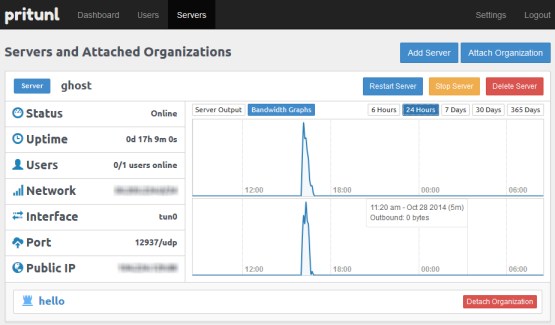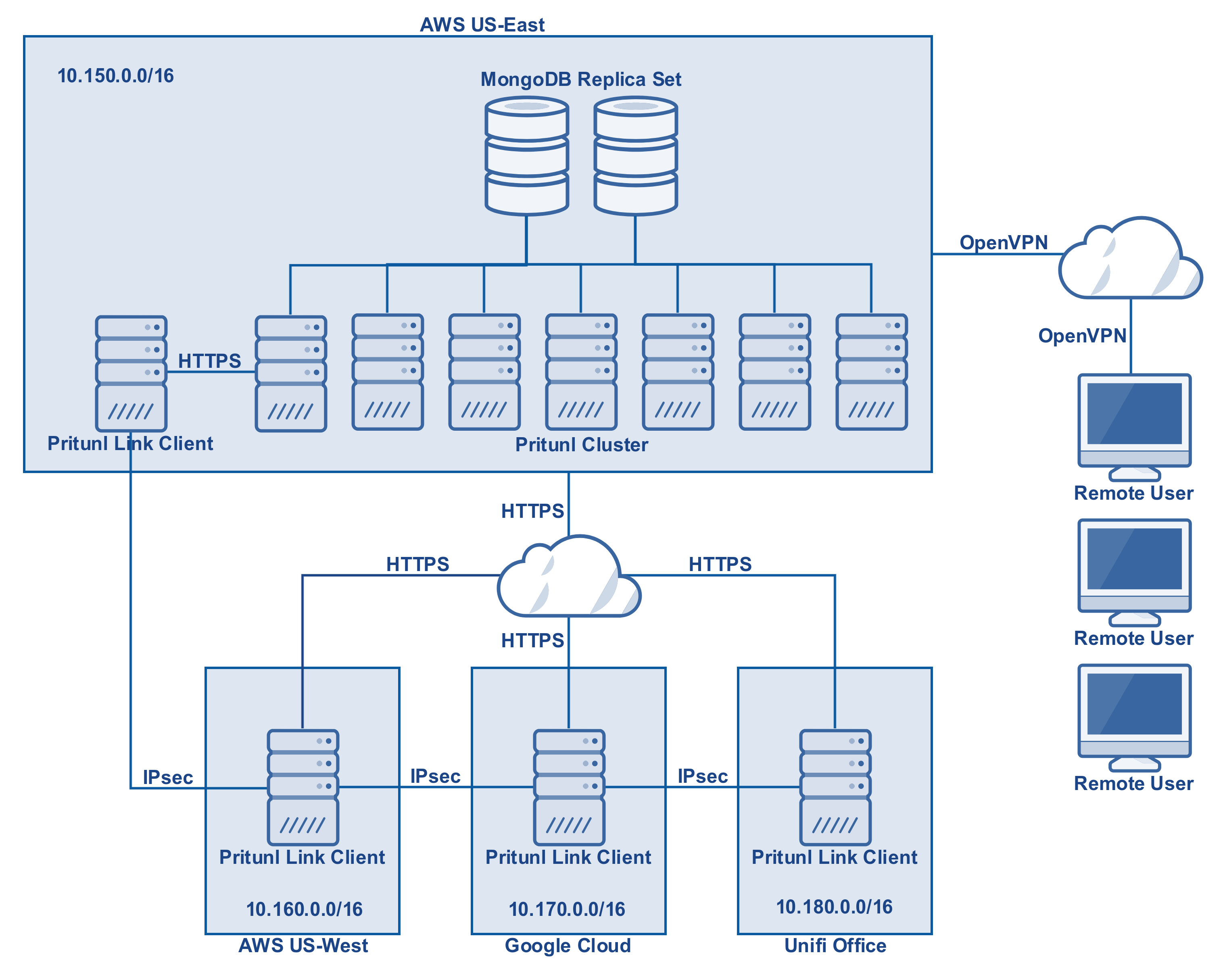


You’ll probably want to put this in your private subnet if you have one. Go ahead and start an instance of the size that suits your deployment and use Ubuntu Server 14.04. We’ll start with the database host first. TCP 27017 open to the VPN SG for the database connection.TCP/22 open to your IP for SSH (you may want to remove this or limit it later on).UDP 25000 open to 0.0.0.0/0 for the VPN tunnel.TCP/9700 open to your IP for access to the web UI (you may want to open this to /0 later).
#Aws pritunl update#
You can use other methods to make the IP stick but this one is the simplest and it allows the host to update from the web. We’ll use two for the internet-facing hosts and the last will be a way to provide a static IP for the database host. Go ahead and allocate 3 Elastic IPs in your VPC. It’s possible to use Arch Linux or Amazon Linux instead if you prefer that.įirst, of course, you’ll need to be logged into the AWS console or have the CLI set up on your machine. In this case I’ll be using AWS but the principals are the same no matter where the hosts are.įor this example we’ll be using Ubuntu Server to keep things more provider-agnostic. The setup is pretty simple but since I didn’t see any articles or posts covering the setup so I thought it would be good to go ahead and put something together. This lets you run multiple Pritunl hosts for your users to provide extra endpoints in the event of a failure. Replicated Servers gives you a unified backend database (using MongoDB) that stores configuration and user information.
#Aws pritunl license#
There are several features that are unlocked by paying for the Enterprise license and one of those is Replicated Servers. It does a nice job of simplifying the management and configuration of the VPN endpoints and, when you pay for Pritunl Enterprise, also includes some other nifty features.
#Aws pritunl software#
The software is an open-source GUI frontend for OpenVPN. If there is peering, a shared VPN should work fine.After doing some research on VPN alternatives to using AWS’ provided VPN options I recently settled on doing a test with the software Pritunl.

In this case, looks like the schema with multiple VPN servers becomes redundant. I would like to avoid peering between accounts for security reasons.


 0 kommentar(er)
0 kommentar(er)
